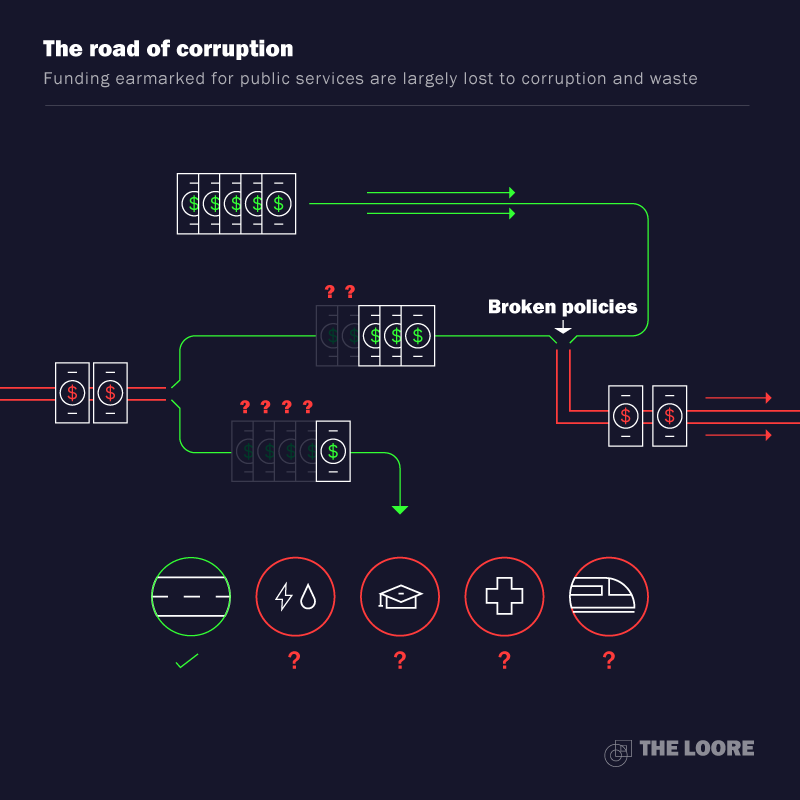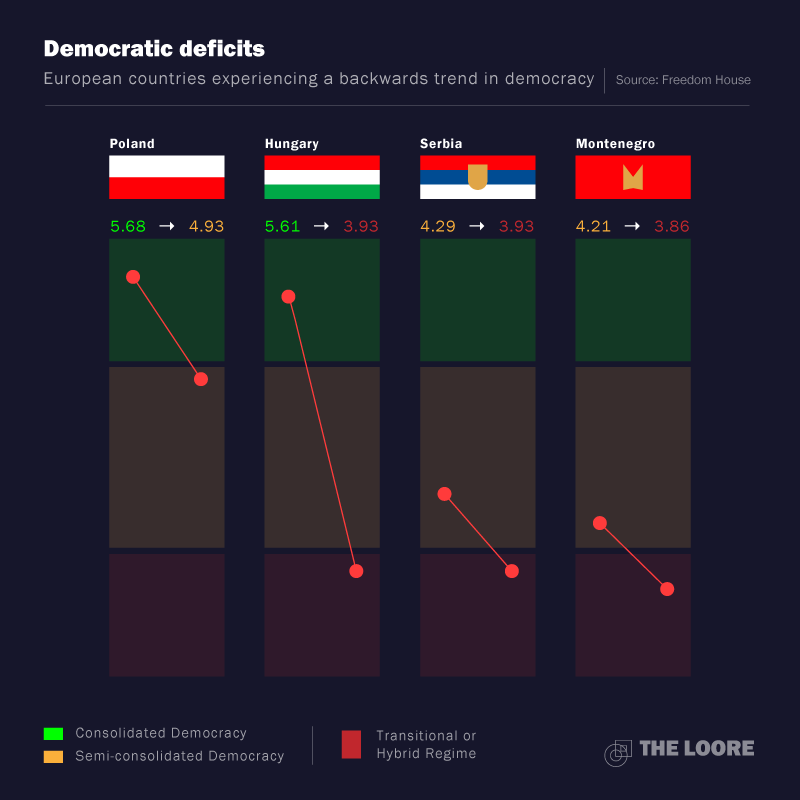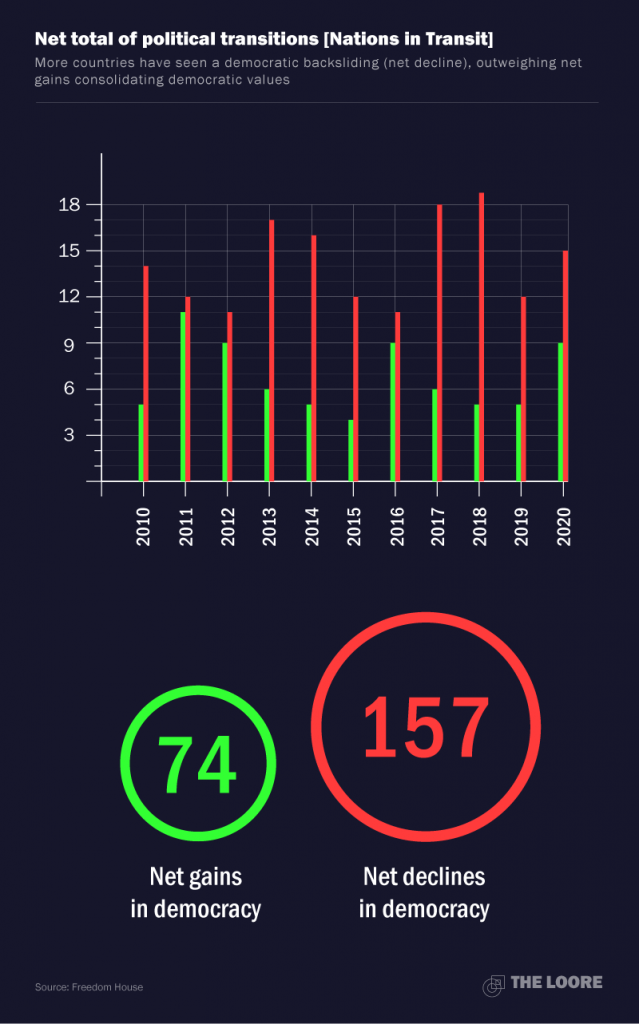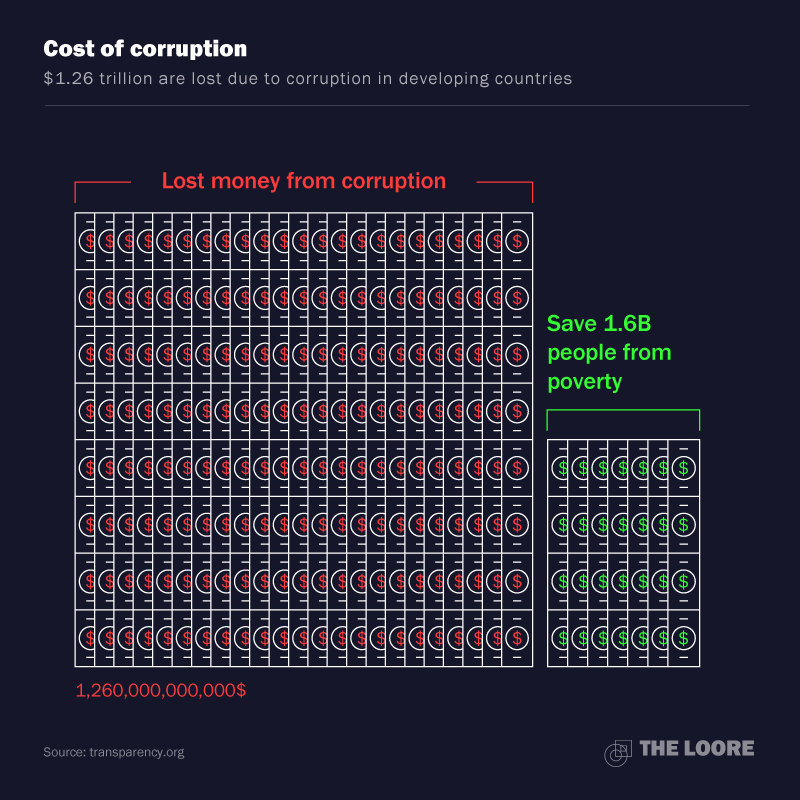How is corruption increasingly a problem?
In a broad sense, corruption is the dishonesty and fraud in a system of governance, that causes negative implications for the whole community.
“Corruption affects us all”
It affects a society in many different ways. It undermines trust for the system and public sector, wastes taxpayers’ money, and affects the quality of services provided for by a government. This means that, when corruption is allowed to thrive, the roads we drive on begin to crumble, healthcare becomes weaker, social benefits start to dry up, as funding for the maintenance of these services are wasted.
Specifically, the poor class bears the brunt for corruption the most, as they rely on public services the most; they will have to rely on subpar services or may even be deprived access completely, putting their livelihoods under pressure.

Rising authoritarianism
For the past decade, an increasing number of countries have been backtracking on their democratic credentials. Nations from Latin America to Asia have seen leaders rise to authority and accumulate power by undermining oversight and judicial institutions designed to keep power in check. According to Sarah Repucci, writing for the “Freedom House” organization; she wrote a stark warning that “Democracy and pluralism are under assault”.
For the 14th consecutive year since Freedom House began records, democracy is declining as more and more leaders seek to consolidate power and root out dissent and opposition. This trend has also witnessed an increase in Europe as countries such as Hungary and Poland adopt policies undermining the democratic institutions at home. According to the ‘Nations in Transit’ report by the Freedom House, Hungary and Poland have seen a dramatic decline in the past decade. In 2010 Poland and Hungary ranked 5.68 and 5.61 respectively, placing them among the ‘consolidated democracy’ category; however, by 2020, that number has declined for Poland to 4.93 ranking as a semi-consolidated democracy; meanwhile, Hungary has seen a more stark decline to 3.96, placing it as a hybrid regime, a far cry from the democratic placing it had a decade earlier; therefore, consolidating authoritarian tendencies right in the heartland of what is arguably the most democratic continent.

Authoritarianism and burgeoning corruption: Do they correlate?
Both authoritarianism and corruption are seeing an increase lately, which begs the questions:
Are they related to one another?
Some of the hallmarks for authoritarianism are major breeding grounds for corruption to manifest itself and thrive; these are:
- Lack of transparency: Authoritarian governments tend to be less transparent and more manipulative of public information. It is increasingly becoming difficult to access information about public policy and management that might be deemed suspicious or corrupt.
- Cronyism: Authoritarian leaders and parties usually provide government contracts to partners or family members, in return for political loyalty and privileges. This comes at the expense of fair competition and quality service for the public. Providing poor services as quality is not prioritized.
- Intolerance for dissent: Opposition and dissenting views are not openly tolerated and silenced through abuse of power and judicial intervention. Greatly harming public trust and undermining accountability towards the political elite.
- Media control: Complementing the intolerance for dissent, having control over the media is an effective tool to manipulate public perception by monitoring what’s reported and shown on the media. Preventing negative press and opposition views to make its way to the public.

The core subject matter that tie these points together is “accountability”, or lack thereof. The lack of political, judicial and popular accountability paves the way for undemocratic policies and corruption to gradually take hold and thrive.
Effects of corruption
Corruption has broken the lives of countless of people and weakened nations immensely; one example is Lebanon, a small Mediterranean country in West Asia, in the midst of a crippling financial and economic collapse. Seeing its potential and resources deplete by its political elites left the country without stable electricity, constant water shortages, heavy pollution and crumbling infrastructure.
Around US $1.26 trillion per year – a number greater than some major economies – is lost in developing countries as a result of corrupt tactics and measures such as bribery, and tax evasion, also known as ‘Illicit Financial Flows’. 1.6 billion people living less than $1.25 a day could be lifted up from poverty for up to six years with that amount of money. Moreover, according to the EU Commissioner for Home Affairs, corruption in EU countries cost the bloc around €120 billion euros of lost money across its member states.
Similar stories have occurred in different developing countries, as the youth begin to rise up against authoritarianism and corruption, showcasing the younger generations’ understanding and awareness of holding their government accountable, in order to prevent abuse of power. Turning a blind eye to thriving corruption is a huge blow on the economic and political credentials of a nations and causes grave consequences on the health and prosperity of the population.

